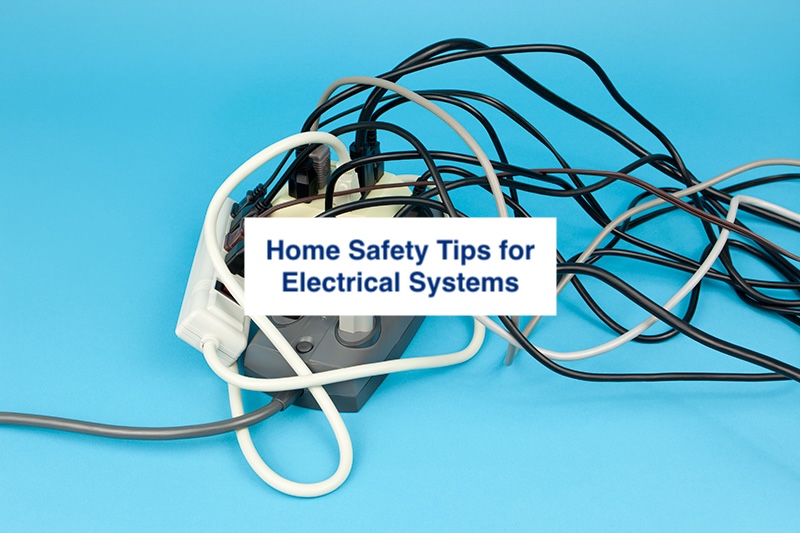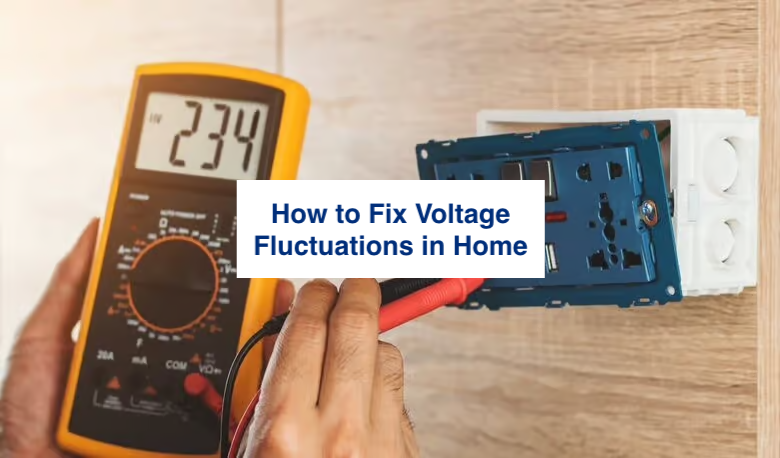Introduction
Electrical systems are an essential part of our homes, powering everything from lights to appliances. However, improper management or neglected electrical systems can pose serious risks, including electrical fires and shocks. To ensure the safety of your home and loved ones, it’s crucial to follow essential home safety tips for electrical systems. This guide will provide actionable advice on maintaining your electrical system and avoiding common hazards.
1. Why Electrical Safety is Important
Maintaining electrical safety in your home is critical to preventing accidents like electrical shocks and fires. Electrical faults are one of the leading causes of home fires worldwide. Following proper electrical safety practices not only keeps your home secure but also ensures that appliances function efficiently, saving you money on repairs and energy costs.
2. Common Electrical Hazards at Home
Understanding the most common electrical hazards is the first step toward prevention. Some of the most frequent issues include:
- Faulty wiring: Old or damaged wires are more likely to overheat and cause fires.
- Overloaded circuits: Plugging too many devices into a single outlet can cause overheating.
- Wet conditions: Water and electricity do not mix; using electrical devices near water sources is dangerous.
- Improper use of extension cords: Extension cords are meant for temporary use, not permanent electrical solutions.
3. Essential Home Safety Tips for Electrical Systems
To keep your home’s electrical system safe, follow these simple but effective tips:
a. Inspect Your Wiring Regularly
Over time, wiring can wear out or become damaged. Inspect your home’s wiring at least once a year to check for signs of wear, such as fraying or discoloration. If you notice any issues, contact an electrician immediately to avoid potential fires or electrical hazards.
b. Avoid Overloading Circuits
Each electrical circuit in your home is designed to handle a specific amount of power. Overloading a circuit by plugging in too many devices can cause overheating and increase the risk of fires. Make sure to distribute your devices across multiple outlets.
c. Use Proper Light Bulbs
Using light bulbs with higher wattage than a fixture can handle may cause overheating. Always follow the manufacturer’s recommendation for the correct wattage to avoid potential fires or electrical problems.
d. Keep Electrical Appliances Dry
Water is a major conductor of electricity, and using electrical appliances near wet areas can lead to shocks or short circuits. Always ensure your hands and surroundings are dry before handling electrical devices.
e. Install Ground Fault Circuit Interrupters (GFCIs)
GFCIs are designed to protect you from electrical shocks in areas prone to moisture, such as bathrooms, kitchens, and outdoor spaces. Installing GFCIs in these areas can significantly reduce the risk of electrocution.
f. Replace Damaged Cords and Outlets
Worn-out cords and broken outlets can cause electrical sparks or short circuits. If you notice any signs of damage, such as exposed wires or sparks, replace the cords or have a professional fix the outlets immediately.
g. Hire a Qualified Electrician
For any significant electrical work or issues, always hire a licensed electrician. DIY electrical fixes can lead to dangerous situations if not done correctly. A qualified electrician will ensure that your system meets all safety standards and is working efficiently.
4. Preventing Electrical Fires
Electrical fires are a serious threat in many homes, but with proper care, they are avoidable. Here are some steps to prevent electrical fires:
- Check for loose connections: Loose connections in electrical outlets can cause overheating and fires. Always ensure outlets are secure.
- Install smoke detectors: Install smoke alarms in every room and test them regularly to ensure they are working.
- Don’t ignore tripping circuit breakers: If your circuit breaker trips often, it’s a sign of electrical issues. Don’t ignore it; consult an electrician immediately.
- Avoid running cords under carpets: Electrical cords should never be placed under carpets as they can overheat and spark fires.
5. Frequently Asked Questions (FAQs)
Q1. What should I do if my circuit breaker keeps tripping?
A: A frequently tripping circuit breaker is a sign of an overloaded or faulty circuit. You should avoid using too many devices on the same circuit and consult an electrician to inspect the wiring.
Q2. How often should I get my home’s electrical system inspected?
A: Ideally, your home’s electrical system should be inspected by a licensed electrician every 3-5 years. If your home is older or you experience frequent electrical issues, you may need more frequent inspections.
Q3. Can I fix minor electrical issues on my own?
A: While changing a light bulb or resetting a breaker is fine, any other electrical work should be handled by a professional to ensure your safety and compliance with electrical codes.
Q4. Are extension cords safe to use long-term?
A: Extension cords are designed for temporary use. Long-term use can lead to overheating, which increases the risk of fire. It’s best to install additional outlets if you need more plug points.
6. Conclusion
Electrical safety should never be taken lightly. By regularly inspecting your home’s wiring, using proper appliances, and following essential safety guidelines, you can significantly reduce the risk of electrical hazards. For any major electrical work or concerns, always consult a licensed electrician to ensure your home remains safe and secure. Regular maintenance and following these home safety tips for electrical systems will protect both your property and loved ones.

